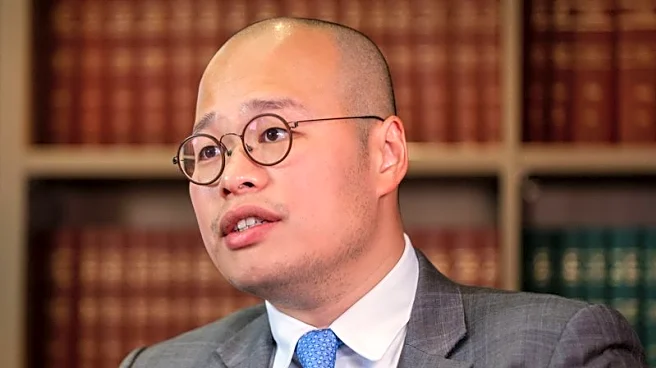Rapid Read • 8 min read
Erin Kelly, a 29-year-old mother from Australia, has been diagnosed with a rare hereditary form of Alzheimer's disease, a condition typically associated with older age. Her diagnosis came after brain scans revealed evidence of the disease, making her case unique due to her young age. Initially in denial, Kelly has now taken proactive steps to address her condition, including launching an online fundraiser to cover treatment costs and raise awareness. Her efforts are supported by her stepsister, Jessica Simpson, as she seeks to make a difference for others with similar genetic predispositions.
AD
Kelly's situation highlights the challenges faced by individuals diagnosed with early-onset Alzheimer's, a condition that can significantly impact family dynamics and personal well-being. Her case underscores the need for increased research and support for younger patients who fall outside typical treatment criteria. The financial burden of treatment, which is not subsidized due to lack of approval, further emphasizes the need for policy changes to accommodate unique cases like Kelly's. Her story brings attention to the broader issue of genetic diseases and the importance of advancing medical research to provide effective solutions.
Kelly plans to continue her advocacy efforts, aiming to secure access to the drug 'lecanemab,' which could potentially slow the progression of her condition. However, the drug's availability and effectiveness for someone of her age remain uncertain. Her fundraising campaign seeks to gather support for both her treatment and broader research initiatives. As Kelly navigates these challenges, her story may inspire policy discussions on expanding treatment access and funding for rare genetic conditions.
Kelly's journey raises ethical questions about the accessibility of experimental treatments for young patients and the role of healthcare systems in supporting individuals with rare conditions. Her proactive approach to her diagnosis reflects a broader cultural shift towards patient advocacy and empowerment in the face of daunting medical challenges. The emotional and psychological impact on her family, particularly her young daughter, adds a poignant dimension to the narrative, highlighting the human side of medical advancements.
AD
More Stories You Might Enjoy











